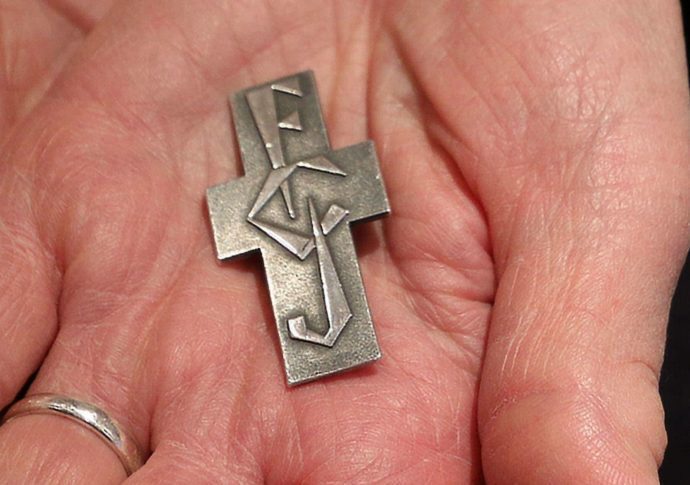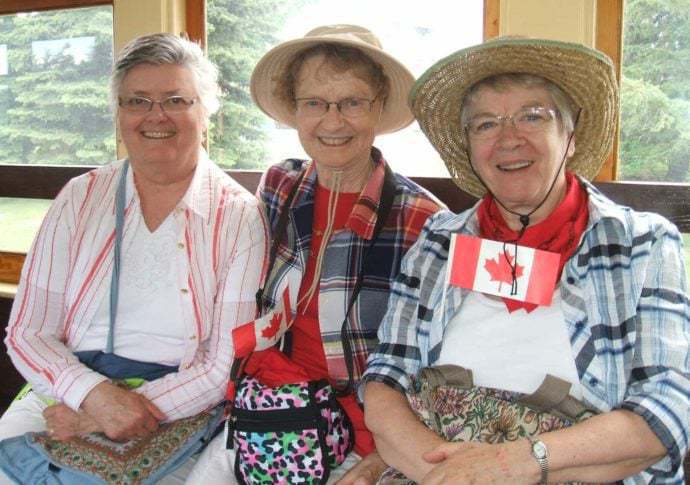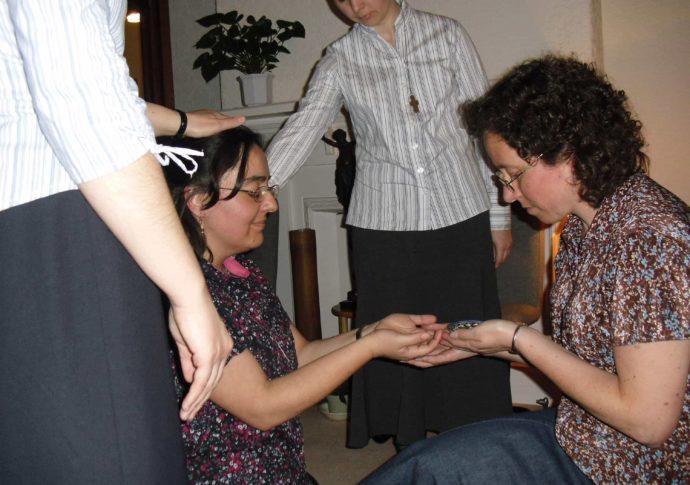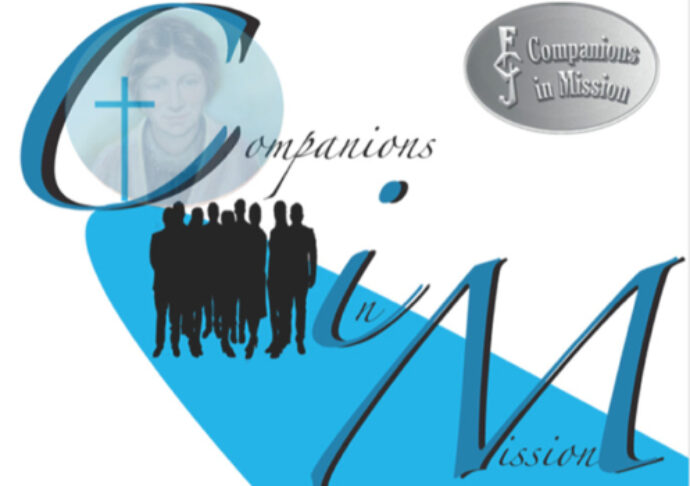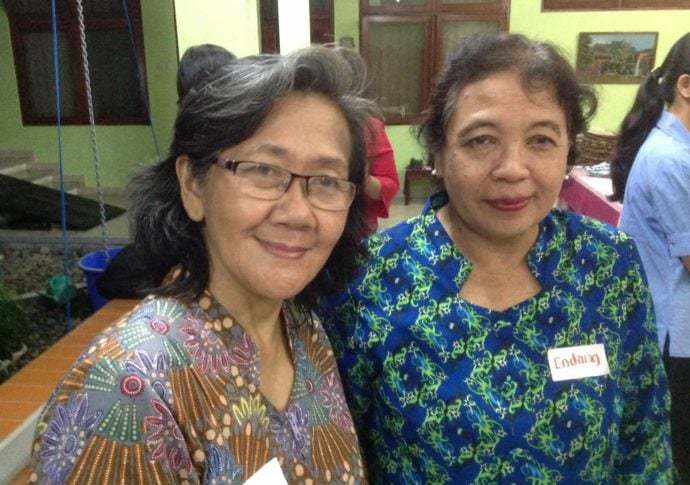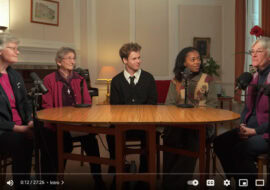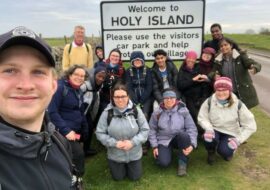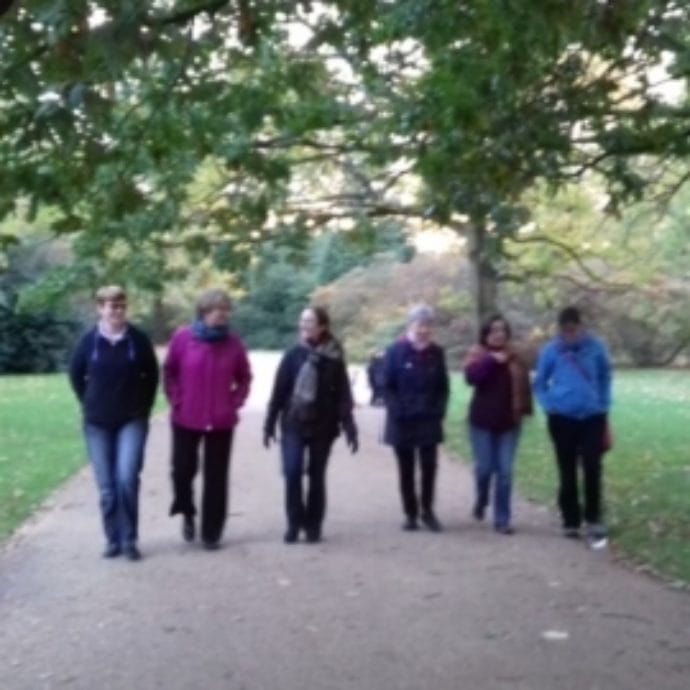To celebrate Laudato Si’ Week and the 5th anniversary of the publication of the encyclical Laudato Si’ we asked a group of young adults in the FCJ Young Adult Network to share reflections on the theme. With just a simple question, what practical actions can make a difference locally? we wanted to highlight both the large scale issues and the fact that we all have personal agency and can do SOMETHING however small.
The responses were wonderfully varied and we are so grateful to all who shared reflections. Enjoy them!
Awe and Wonder – reflections in ‘lockdown’
By Emma Morrison
An image in Laudato Si’ which have found particularly relevant recently is Brother Sun, Sister Moon from the canticle of St Francis of Assisi.
As the second of four siblings, I grew up very close to my brothers and sisters. However, us four ‘children’ are now all aged between 18 and 24, and three of us normally live away from home. But just before lockdown we all moved back into our parents’ home. This moving back into a ‘common home’, for a prolonged period with my adult siblings, has involved a lot of re-examining of and new insights into our ‘brother-sister’ relationships.
The most important insight has been learning to appreciate my siblings for the adults they are now – still being united in where we came from but accepting and enjoying our differences, and our complexities. The second has been learning to communicate with each other despite our differences – the four of us all have very different ways of expressing our opinions, feelings and problems!

As I was reflecting about how these reflections with my human siblings can translate to my wild and celestial siblings, the question which was sticking with me was “well, if communication is so important, how can I communicate with Brother Sun, Sister Moon?”. In paragraph 11 of Laudato Si’, Pope Francis links ‘the language of fraternity’ with an ‘openness to awe and wonder’ – for me this hits the nail on the head, this question arising from my second insight, had it’s answer in the first: that the way we can communicate with creation through a language of awe and wonder, through appreciating our diversity and complexity, while enjoying our common bond.
This sense of ‘awe and wonder’ has also been really important to me as I’ve been trying to navigate my spiritual life in lockdown: one of the places I’ve felt closest to God is when I can go out on a night and gaze at the stars. Something that amazed me was realising that when I look at a star, a photon has potentially travelled hundreds of years at the speed of light, from that star millions of miles away, just so I can see that star in that moment – just by looking with wonder we are communicating and receiving gifts even from our most physically distanced siblings.
Reducing Plastic Pollution – an urgent cry of the earth
By Rebecca Buckley for the FCJ Young Adult Network
 At my school here in the UAE, we have recently spent some time during our PSHE style lessons looking at one of the biggest issues facing the planet and wildlife (especially in our oceans) currently – plastic pollution; so I thought I would focus on this.
At my school here in the UAE, we have recently spent some time during our PSHE style lessons looking at one of the biggest issues facing the planet and wildlife (especially in our oceans) currently – plastic pollution; so I thought I would focus on this.
Millions of animals are killed by plastics every year, and nearly 700 species, including endangered ones, are known to have been affected by plastics. Most of the deaths to animals are caused by entanglement or starvation but microplastics have also been found in more than 100 aquatic species. Tests have also confirmed liver and cell damage and disruptions to reproductive systems in some species.
I asked all students in my form class to make a plastic pledge which involved them suggesting one way that they could reduce their plastic use in their everyday lives, and aiming to follow it. Here are some of their suggestions:
- Buy a reusable water bottle instead of buying disposable plastic bottles
- Stop using cling film and switch to aluminium foil instead
- Stop using bottled soaps and shower gels and switch to soap bars
- Buy a reusable coffee cup and take it to coffee shops to fill up instead of buying a disposable one (many outlets here offer a discount if you bring your own reusable cup)
- Say no to plastic straws when out at restaurants/cafes/bars and only use paper ones at home, if you need to
- Choose the ‘no cutlery’ option when ordering takeaway so you don’t get disposable plastic cutlery (both of the main delivery providers out here offer this option)
- Choose the ‘no plastic packaging’ option when ordering groceries (some of the companies out here that offer delivery services for groceries offer this option so that all food items such as fruit/veg come loose
- If you have to use disposable plastic, recycle it as much as you can (most schools/complexes have recycle bins that you can take your plastic waste to)
- Stop using plastic earbuds and use either reusable ones or just tissue instead
- Don’t buy cosmetic products that contain glitter or microbeads (check the packaging or buy from companies that don’t use them in any of their products)
- Buy reusable shopping bags and take them with you to the shops.
My own pledge from this list was the coffee cup one, and I have stuck to it! I have also taken on a few of the other pledges, such as switching to soap bars and aluminium foil- even just one small switch like this from every household can make a huge difference. Our school has also recently banned disposable water cups and no longer stocks them at any of the water fountains within the school grounds, so students and staff must bring their own reusable bottles instead.
Eucharistic Shopping – Reflections from Lockdown
by Helen Jones, Pastoral Associate, Liverpool South Pastoral Area
Thinking back to my upbringing, my mother was always very much “in charge” of our household – cooking was her business and the kitchen was her office. We did not venture into it as she did things her way (she is German!) Perhaps this is why my relationship with the kitchen had been ambivalent at best.
Lockdown has changed me. The seeds were sown with a talk by Sr Margaret Atkins OSA from Boarbank Hall in Cumbria at Adoremus, the 2018 National Eucharistic Congress. She held food as central to our understanding of Eucharist. The more I have reflected on this the deeper it has taken me. The providence of food – our relationship with nature: factory farming (I was shocked as a primary school child when we had a trip to a battery hen farm), genetically modified grain, tomatoes, rice… where does it all end? how we prepare food, how we gather to eat, the communication over a meal – a potentially unifying, healing event, inclusivity of all, the gratitude of provision, the strength in companionship, the beauty in sharing of our bounty.
 I have two teenage sons at home constant eaters. Cooking for them when I have a full-time job and unsocial hours was a chore and as such, I had to rely on snacks and ready meals more often than I would have liked. Now in lockdown, we eat together: breakfast, lunch and supper. We plan our shopping list days in advance for click and collect, we utilise leftovers constantly, the boys cook too.
I have two teenage sons at home constant eaters. Cooking for them when I have a full-time job and unsocial hours was a chore and as such, I had to rely on snacks and ready meals more often than I would have liked. Now in lockdown, we eat together: breakfast, lunch and supper. We plan our shopping list days in advance for click and collect, we utilise leftovers constantly, the boys cook too.
Our relationship with food has changed. We are aware of how precious certain items are – flour, eggs, baking powder, pasta, rice, passata. We are aware of how easily we took things for granted – we didn’t value what we had, we expected everything at all times –seasonal adaptations and tastes had merged as we could get everything anytime from anywhere. Now we use local suppliers, we are more inventive, and we ensure fewer air miles and packaging as a result.
Our recycling has decreased, our food waste is more peelings than the waste of uneaten ready meals, and our enjoyment of mealtime has increased – we are in communion with each other at the table, sharing the chores, serving and being served, breaking bread together, happier and healthier.
That relationship between what we have on our doorstep, how it is produced, how we consume it and how it makes us feel must remain as it is now: careful, respectful, giving us time to “be”, giving us our time of gratitude as we experience physical nourishment, spiritual nourishment and healing in coming together in table fellowship knowing our food has been produced with love and care.
Food, Packaging and Home-Growing
By Miriam for the FCJ Young Adult Network
An awareness of the gravity of today’s cultural and ecological crisis must be translated into new habits (LS #209)
Following EcoMagis last summer, I had begun to think more about the food I was buying in terms of where it came from and how it was packaged. I’d made small steps of making some things which come packaged in plastic, like hummus and bread, and buying lose vegetables and fruit where possible. However, this is easy to do when it is just me.
When lockdown came into force, I was with family. Suddenly my parents went from having three people in their house to five. How could we feed five people when all the major supermarkets had no available delivery slots and how could we avoid the excess of packaging that often comes with deliveries?
On special occasions, before lockdown, we used to buy food from the local farmers market. This involved a break from routine, a special trip, and we saw this as something which was “too hard” to do on a regular basis. Lockdown has prompted us to shift beyond the usual routine, to rethink our habits and find a new solution.
We are thinking carefully each week about what we order, planning meals in advanced, and making more things from scratch. Now it is normal to see sourdough proofing in the kitchen, biscuits baking in the oven, and someone scrubbing soily potatoes.
 Lockdown also prompted us to spend more time doing things together and with the sunny weather this has been mainly in the garden. There were a few things that we were finding impossible to get delivered without plastic packaging, like salads and small tomatoes. We investigated how we could grow these ourselves and it turns out that you can repurpose almost any container as a planter so long as you drill holes in the bottom to allow drainage. The salads have been the first to spring up and we have each enjoyed watching them grow from their tiny seeds.
Lockdown also prompted us to spend more time doing things together and with the sunny weather this has been mainly in the garden. There were a few things that we were finding impossible to get delivered without plastic packaging, like salads and small tomatoes. We investigated how we could grow these ourselves and it turns out that you can repurpose almost any container as a planter so long as you drill holes in the bottom to allow drainage. The salads have been the first to spring up and we have each enjoyed watching them grow from their tiny seeds.
As we look to the future, the next step for us is to begin to make the same change of habit for non-food based items.
Simple Actions of Everyday Life – Laudato Si’
By Tamzin Simmons-Robertson
In what simple practical ways are you living with a greater awareness of the environment and our connection to it?
‘I am doing more cooking in bulk; making stews where I am flexible about the ingredients; using tinned goods and leftovers and recycling containers and packaging afterwards as far as possible. I also donate to my local foodbank.
Christian spirituality proposes a growth marked by moderation and the capacity to be happy with little. It is a return to that simplicity which allows us to stop and appreciate the small things, to be grateful for the opportunities which life affords us, to be spiritually detached from what we possess, and not to succumb to sadness for what we lack. (LS #22)
‘I’m a Work Coach in a job centre – I think/hope a lot will change around the idea of work after coronavirus. I often think of what the Pope has to say about unemployment when I’m doing my job, and Catholic Social Teaching certainly inspires me to think again and remember the dignity of the person in front of me if I’m ever tempted to become too bureaucratic.’
We were created with a vocation to work… Work is a necessity, part of the meaning of life on this earth, a path to growth, human development and personal fulfilment. Helping the poor financially must always be a provisional solution in the face of pressing needs. The broader objective should always be to allow them a dignified life through work. (LS #128)
To stop investing in people, in order to gain greater short-term financial gain, is bad business for society.
Time to Heal, Space to Breathe – Laudato Si’
by Nicole Piscopo for the FCJ Young Adult Network

In what simple practical ways are you living with a greater awareness of the environment and our connection to it?
Right now I don’t really feel I’m doing anything in particular for the planet. But I saw a picture a while ago that right now, our planet is breathing. It’s taking a break from all the pollution we throw at it and hopefully taking time to heal.
The continued acceleration of changes affecting humanity and the planet is coupled today with a more intensified pace of life and work which might be called “rapidification”. Although change is part of the working of complex systems, the speed with which human activity has developed contrasts with the naturally slow pace of biological evolution. Moreover, the goals of this rapid and constant change are not necessarily geared to the common good or to integral and sustainable human development. Change is something desirable, yet it becomes a source of anxiety when it causes harm to the world and to the quality of life of much of humanity. (LS #18)
Times like these show us that we’re not as in control as we think we are. We’re all vulnerable and at nature’s mercy. And we realise how important the things we take for granted are.
I think it’s especially important to check up on people and their mental health because we’re all going through a tough time, and we have to take care of each other.
Authentic development includes efforts to bring about an integral improvement in the quality of human life, and this entails considering the setting in which people live their lives. These settings influence the way we think, feel and act. In our rooms, our homes, our workplaces and neighbourhoods, we use our environment as a way of expressing our identity. We make every effort to adapt to our environment, but when it is disorderly, chaotic or saturated with noise and ugliness, such overstimulation makes it difficult to find ourselves integrated and happy. (LS #147)






